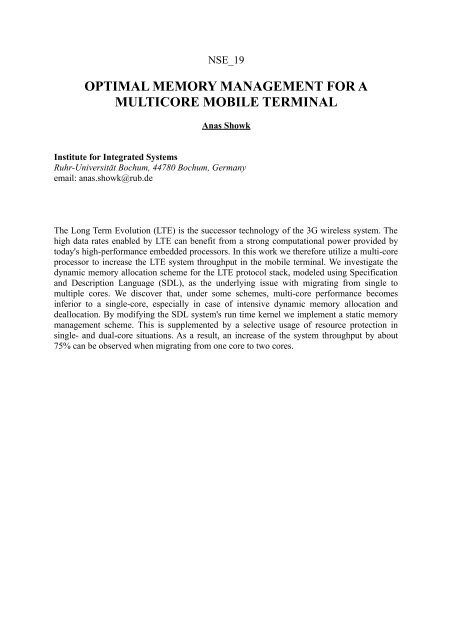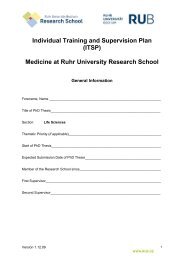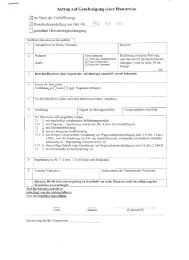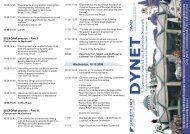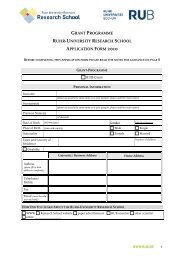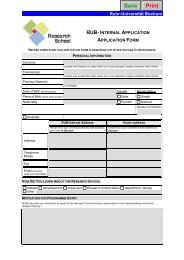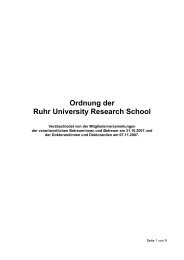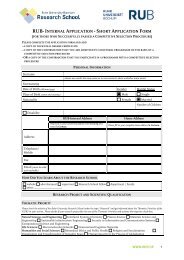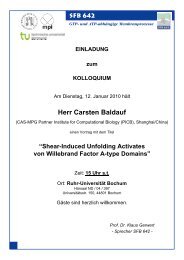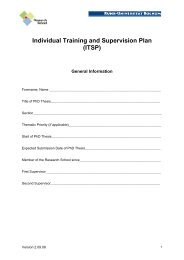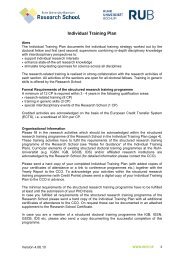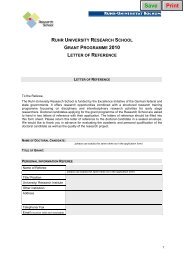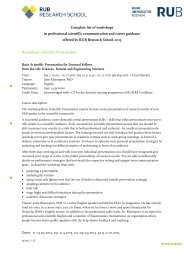Section Days abstract book 2010.indd - RUB Research School ...
Section Days abstract book 2010.indd - RUB Research School ...
Section Days abstract book 2010.indd - RUB Research School ...
You also want an ePaper? Increase the reach of your titles
YUMPU automatically turns print PDFs into web optimized ePapers that Google loves.
NSE_19<br />
OPTIMAL MEMORY MANAGEMENT FOR A<br />
MULTICORE MOBILE TERMINAL<br />
Anas Showk<br />
Institute for Integrated Systems<br />
Ruhr-Universität Bochum, 44780 Bochum, Germany<br />
email: anas.showk@rub.de<br />
The Long Term Evolution (LTE) is the successor technology of the 3G wireless system. The<br />
high data rates enabled by LTE can benefit from a strong computational power provided by<br />
today's high-performance embedded processors. In this work we therefore utilize a multi-core<br />
processor to increase the LTE system throughput in the mobile terminal. We investigate the<br />
dynamic memory allocation scheme for the LTE protocol stack, modeled using Specification<br />
and Description Language (SDL), as the underlying issue with migrating from single to<br />
multiple cores. We discover that, under some schemes, multi-core performance becomes<br />
inferior to a single-core, especially in case of intensive dynamic memory allocation and<br />
deallocation. By modifying the SDL system's run time kernel we implement a static memory<br />
management scheme. This is supplemented by a selective usage of resource protection in<br />
single- and dual-core situations. As a result, an increase of the system throughput by about<br />
75% can be observed when migrating from one core to two cores.


